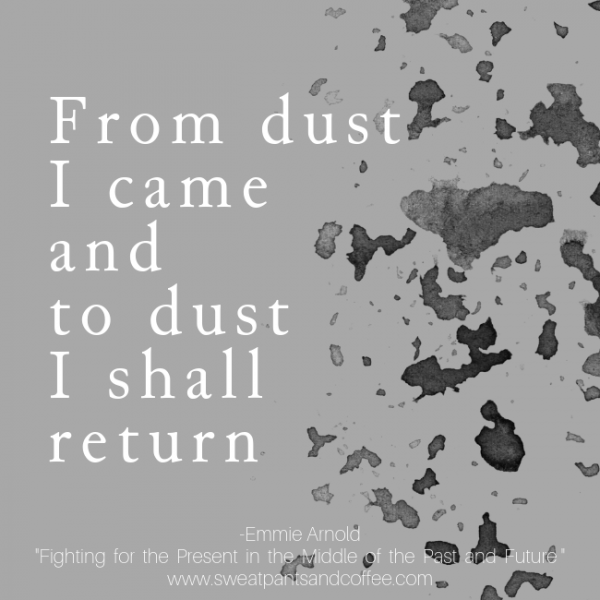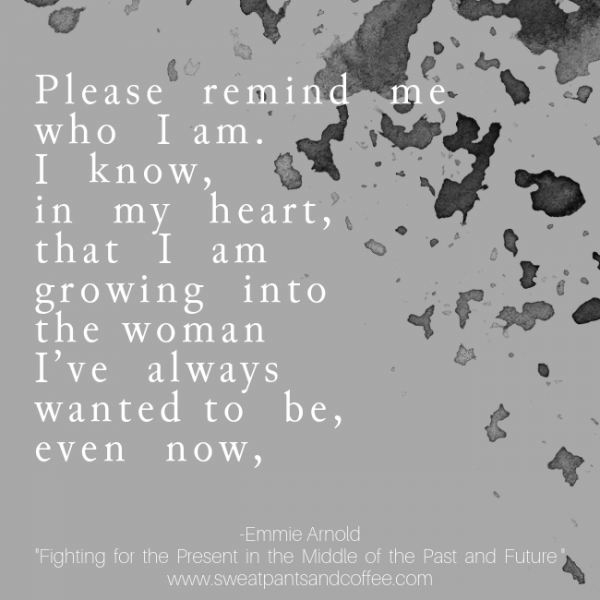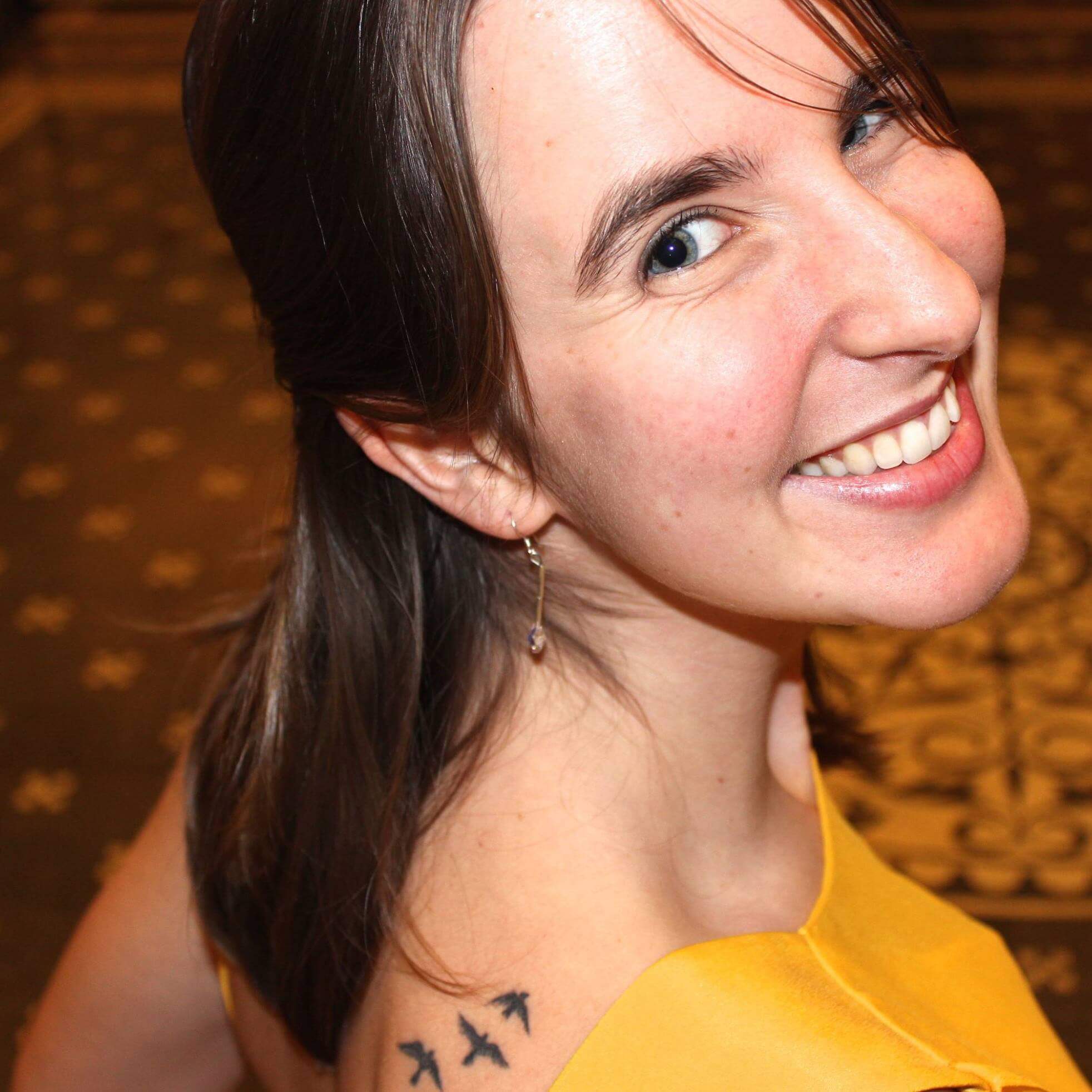“…I believed that I was living in the center, but I rarely let my feet rest on solid ground, rooting me in the present… my mind hummed with possible futures. Always. If I were to invent a sin to describe what that was – for how I lived – I would not say it was simply that I didn’t stop to smell the roses. It was the sin of arrogance, of becoming impervious to life itself. I failed to love what was present and decided to love what was possible instead.
I must learn to live in ordinary time, but I don’t know how.”
– Kate Bowler, author of “Everything Happens for a Reason (And Other Lies I’ve Loved)” and host of the podcast “Everything Happens”
I, too, have believed that I was living in the center. Not only has my mind hummed with possible futures, but also possible pasts – the ones that I too often try to redo in my mind based on my regrets and pains.
I have been struck by Kate Bowler’s book this summer. It’s her personal story about those three aspects of time: past, future, and the one that we may struggle with inhabiting the most, present. It involves her facing the future of a terminal cancer diagnosis, in which it is nearly impossible to make plans. The prognosis is almost certainly not good. She is looking upon her past, the beautiful and the difficult moments alike, and learning to live in ordinary time guided by the lens of her most pressing hopes. (And, unfortunately, facing people who say ridiculous things in response to her dying – here are some things not to say and some things that she’s found helpful instead.)
These present-tense hopes, interestingly and honestly, are shaped by the lens of mortality that most people do not need to seriously consider until much later in life – at least, usually not in their early thirties. Discovering what really matters to us in ordinary-time life through the lens of mortality isn’t just something that’s happened to her, though. Our present-tense hopes differ, but what is most personal is the most universal.
“Ordinary time” is a phrase that Christian liturgical churches use to describe the in-between times. This is the part of the calendar that isn’t the time when Christmas trees are on display, or Easter candy is lining an entire aisle of the grocery store, or when people who consider themselves religious (or come from religious families) finally show up in the pews, or when we’re told it’s a “special” time of year, so act accordingly. We don’t teach each other much about what it looks like to act accordingly in ordinary time, and despite our penchant for a good celebration, ordinary time is the longest liturgical season. Perhaps it’s a reminder that life as a whole is compromised of more than just milestones. Bowler writes: “Every day has been a collection of trivial details – little intimacies and jokes and screw-ups and realizations.” It’s not just the past or the future. Life happens now in ordinary time.
As she wonders what the future will look like after she’s gone, Bowler’s response to “What do I want to give them?” allows her to make plans in ordinary time. Plans for today, for this week, that reflect her deepest values and hopes.
That’s a lesson she’s helping me relearn.

I’d recommend this book to pretty much anybody, Christian/religious or not, who is in a typical season of life (or a painful one!), but I couldn’t have imagined how much I’d need to recommend it to myself during this season of my own life. I may have a heightened sense of my own mortality – from dust I came and to dust I shall return – due to the chronic illnesses that remind me acutely every day that my body is fallible, but my diagnoses likely will not affect my lifespan in a noticeable way. Even though I have a greater understanding of my present-tense hopes than the average 25-year-old does, I can easily assume that my lifespan will be average, if not better than average. Women on both sides of my family tend to kick on for a while past age 78. Though I often worry about how much I can get done each day, I can get cocky about the expected span of my life.
I’m quick to forget how my present-tense hopes can actually help me remain in ordinary time – to inhabit it, rather than have one foot partially planted in the past and the other partially planted in the future. (And then try to grow a third foot to stay firmly planted here.)
It’s been a season of greater pain and challenge than usual. The past is constantly on my mind. I have ached under the weight of important relationships radically changing and writing my entire life story in essay format for my hospital chaplaincy residency application. The future is, too. I often worry about doing as much preventative healthcare as I can so that my life can be better now, but it’s more easily framed in future hope than present. I often worry about being able to find balance during my last year of seminary, a year that likely will be very busy with relationship-building and reforming, schoolwork, internship work, and figuring out where I’ll be next year.

It’s been so chaotic that I’ve had trouble wanting or being able to stay here and be in the present. But when I met with a trusted mentor recently, she encouraged me, saying that I was getting through this searingly painful time with integrity because I was still acting out of my values. Even though I’ve been angry, I’ve fought for intimacy more than I’ve fought to win. Even though I’ve been busy, I’ve fought to have leisure and quiet time. Even though I’ve been even more fatigued than usual, I’ve fought for health, meaning that I get my butt out of bed, even though my instinct sometimes is to isolate from others or sleep longer in the hopes that I can sleep off the fatigue. (It usually doesn’t work, anyway.) Even though I’ve been… I’ve fought. I ask my friends: if you see me in the midst of moments when I fail to stay myself, please remind me who I am. I know, in my heart, that I am growing into the woman I’ve always wanted to be, even now, in the midst of a season that has shaken me to my very core.
If you don’t know what your deepest values and hopes are, I suggest that you do a personal values inventory and learn more about how you can shape your days to match them, even in just little ways. Because I know my present-tense hopes, I know that I can continue learning to plant myself in ordinary time more deeply. Because I’m acting out of integrity, I know I’m not lost, and because Kate Bowler is living out her present-tense hopes, neither is she, even in her last days.
What an amazing reality that is.







Leave a Reply